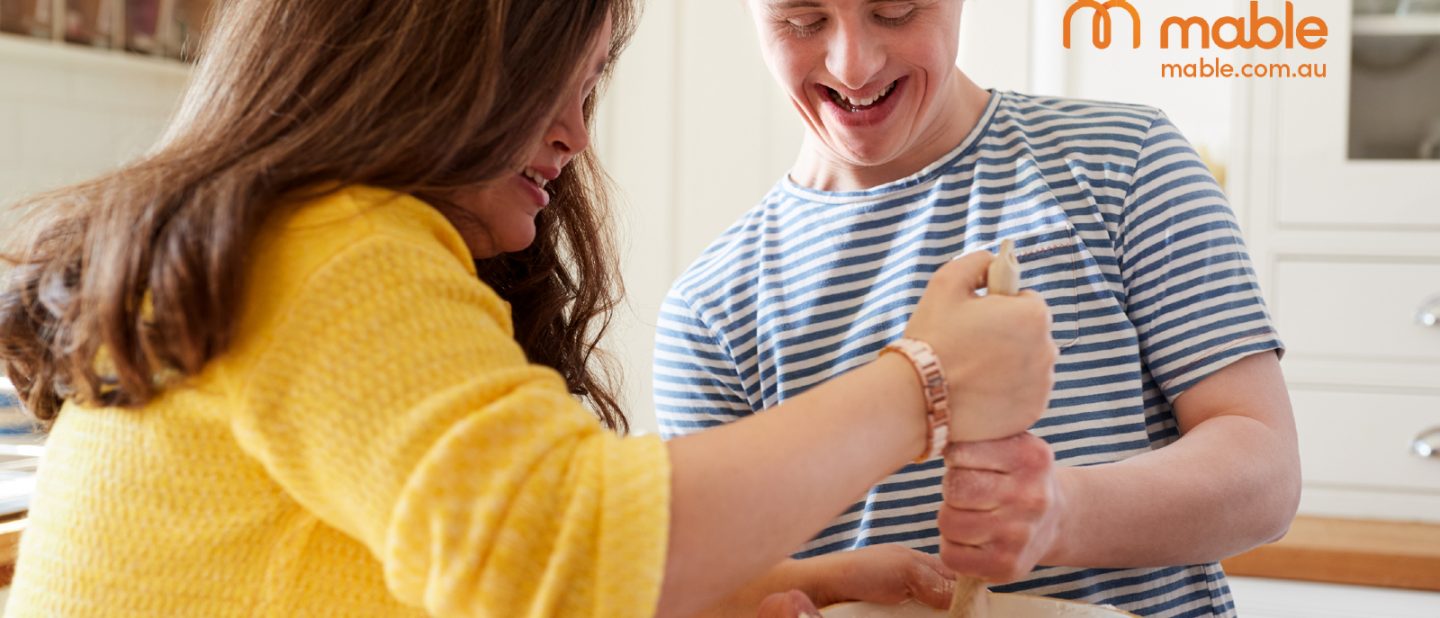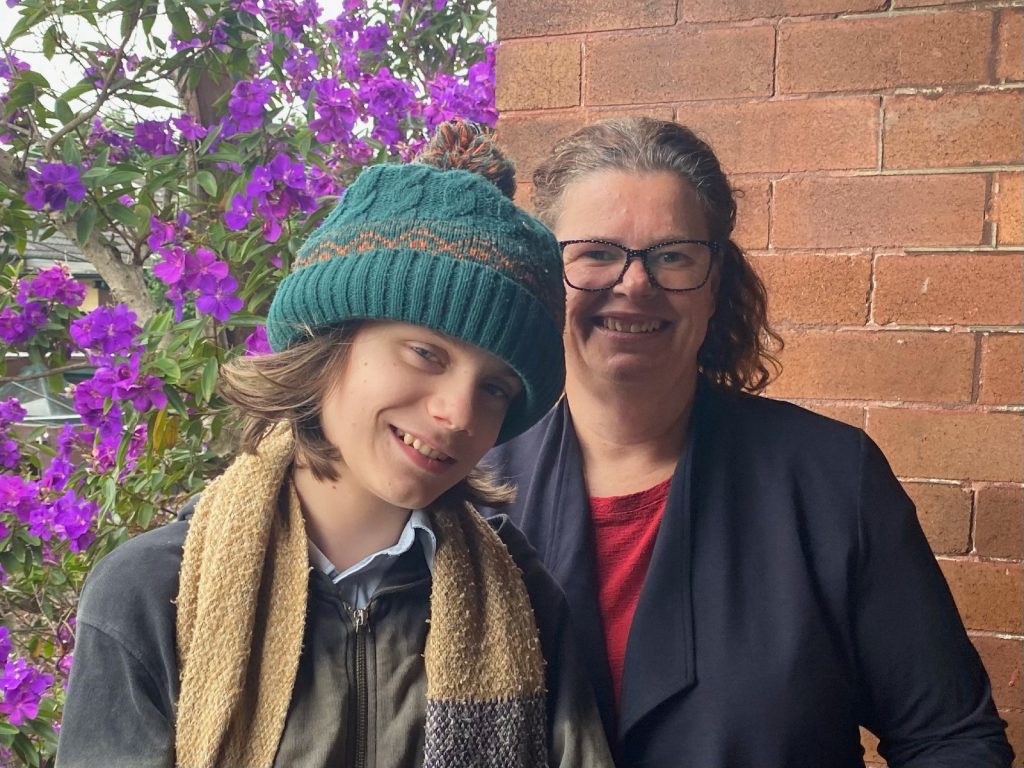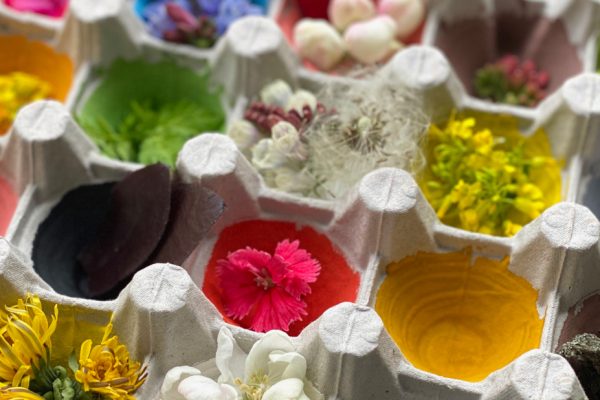
How to find the right support worker for your child
By Katherine Granich
With realistic expectations, thoughtful discussion points, and a strengths-based mindset, you’re much more likely to engage a support worker who really works for you and your child’s needs.
Finding and engaging a support worker can seem like a daunting task when you already have so many responsibilities. The mere thought of advertising, interviewing, and hiring someone might make you feel like you’re over it before you’ve even begun.
In fact, a Source Kids survey of 102 parents showed that over 40% of respondents find it hard to even define what they want in a support worker.
So how do you determine what kind of person is the best fit for your family, and where do you start with getting that person on board? What characteristics are important, how do you know you can trust them, and how can you ensure the relationship is a success?
First, ask yourself these three questions
Pieta Manning, State Manager for Victoria at Mable (mable.com.au), a two sided online community for independent support workers, says that before you even think about connecting with a support worker, you should know the answers to these three questions:

“Good support for a child does not happen in isolation but as part of a whole family dynamic” Pieta says.
“For parents who may already be experiencing carer fatigue, it’s important to take a step back and look at how having support can really help them and their family. You shouldn’t have to change everything about your life to fit in with a support worker. Instead, you should be able to engage someone who fits in with your family’s values and needs.”
This front-loaded thought process is, Pieta says, what makes support worker relationships successful. “Once you have identified these three important things, you can apply them to the profile of any support workers you’re considering, and immediately rule in certain people and rule out others. You can be really clear with potential support workers about what you want from them, what your expectations are, and also open the discussion about how they can contribute to creating a successful relationship.
And, says Pieta, this process can also help remove the sting from realising that there will always be people who just aren’t suited to your family. “You’ll understand why a certain person isn’t going to fit, and you can communicate this clearly.”
Start simple
Looking at your child’s NDIS goals is a good starting point. Even a broadly worded goal like “being more confident and familiar with the local community” can be simplified into bite-sized mini goals.
In your mind’s eye, you might be picturing your child confidently striding around the neighbourhood, making eye contact and saying hello to everyone he encounters. But what’s that look like on a micro-level, with an achievable pathway that your child can work on with a support person?
“Choose one thing to start with,” Pieta says.
“If your family has a dog, you might want to find someone who can go with your child when they walk the dog and help them to map your neighbourhood, learning road safety and local landmarks. If your child would like to join a local sporting club or social group, perhaps you could choose a support worker with the same passion, to give them some basic sports skills or help them practice the social skills they will need to be able to join the group successfully.”
Start simple, small, and specific. Don’t underestimate the power of a small achievement – a lot of little triumphs will build your child’s confidence and encourage them to try bigger and more difficult things down the line.
For a child with complex physical or emotional needs, it can be challenging to translate goals into simple actions. But the clearer you are about what will most benefit your child and help them to reach their goals, the clearer you’ll be about the support person you are seeking.
A matter of trust
Many parents feel uncomfortable leaving their child with a support worker, and this anxiety can be one reason that finding an appropriate person is a struggle. Trusting your child with a support worker can feel like a leap of faith – one that parents are understandably wary of taking.
On websites like Mable.com.au, where you can find and select from thousands of independent support workers who all have police and reference checks, you can also transparently see the ones that have the correct working with children check for their state. Just as important is the opportunity to connect with a worker that you feel comfortable with, to have the chance to speak directly about your child’s needs and your expectations. Or you can read reviews that they have received from their previous clients. This is often hard to do when dealing with traditional services so being able to choose and manage who provides support to your child will give you a lot more choice and control.


If you are really struggling to connect with a support worker you could also look in your local community to see if someone you already know might be a good fit with your child. Is there a relief teacher at your child’s school, a friend’s older son they look up to, a neighbour passionate about the same sport, or a professional connection you have that might transform into a support worker role? “While not everyone wants to be a disability support worker there are a lot of people interested in supporting someone in their local community” says Pieta “and Mable provides the platform and support for this to happen in a transparent way using NDIS funding. They can simply invite them to the Mable website and we’ll ensure all the necessary checks and processes are carried out before they can provide support.”
Hot buttons
Try to approach the finding and decision-making process with an open mind. Past negative experiences can be hard to overcome, but instead of thinking about the kind of person you don’t want, think about the kind of person you do want. You’ll know what your non-negotiables are, and you can make these clear from the start.
Here are some of the things that can be important individual choices for choosing a potential support worker:


Investing in the future
When you’re engaging a support worker, you’re looking for a genuine connection that will, hopefully, lead to a longer-term relationship. It can take time and effort on everyone’s part to build this up, including you, your child and your support worker. You might want to start off with a few “trial sessions” initially at home with your child while you are there to observe and ensure that your child feels comfortable and confident with them. You could start with shorter sessions to get to know each other and then gradually increase the length or scope over time. It’s important to share your child’s challenges and goals with your support worker so they understand how they can best contribute.
“The benefits to really connecting with a support worker, and building a trusting relationship with them, are huge,” says Pieta.
“Over time, what started as a basic relationship might grow into a level of trust where your support worker can accompany your child to new activities, for example, which helps grow your child’s independence and shows them their own capabilities to manage their own life.”
And isn’t that what we all want for our children – to live as independent and fulfilling a life as possible? “Support workers should enhance your child’s life, build on your child’s strengths, and be a useful part of the toolbox that helps them achieve their goals,” says Pieta.
Questions to ask potential support workers during a “meet and greet”


It’s okay to say no
You aren’t obligated to accept the first support worker you find, says Pieta. “It can take a bit of time to find someone who is the right fit. If you or your family aren’t comfortable with someone, listen to that feeling. Don’t feel like you need to take whatever you can get.” If the support worker is not going to be suitable or if things don’t work out as you expected, be prepared to give honest feedback.




My son Gus (13) has autism. While he does quite well at school, he finds organising himself, communicating and generally stepping out of the safety of home challenging. We advertised for a support worker to provide life skills coaching for Gus, with an emphasis on supporting him to develop systems, skills, and confidence in a way that worked for him and was consistent with his personality and values. We found and connected with Sophie, an independent support worker on Mable. She has a background in speech therapy and as a teacher aide. Sophie comes for two hours, two to three times a week, and works with Gus on a range of developmental goals. In three months, Sophie has done a great job in establishing trust and a good partnership with Gus.
They work independently and set their own agenda based on what’s happening in Gus’s life. We’ve enjoyed seeing Gus become more confident, independent and resourceful. The other day Sophie and Gus were working on flash cards as a study technique for his science exam. Sophie explained that it was one of the study techniques they were going to test to find out what worked most effectively for Gus. This kind of support is exactly what Gus needs, not only to achieve the right result for him in his science test, but to learn the skills which will enable him to reach his potential in the HSC and University (if that is what he decides to do).


My son Micah (13) has Down Syndrome and is autistic, and this can be a challenging combination to find a support worker. He loves going to the local park and watching the birds, and he would do this all day long if he could! I decided that I wanted a support worker who could accompany him to the park and help keep him safe there, as he is at risk of absconding. I advertised for a male support worker to fill this role and interviewed several people before settling on Daniel, who is a university student studying physical therapy. Daniel comes once a week for four hours. They have developed an amazing rapport and Daniel has instituted a number of things that have extended Micah’s interests. They travel to different parks in the area and log the birds they see there, they go to the library and look at books about local birds, and they take photos of unfamiliar birds or birds with interesting colouring and print them out for a special scrapbook. When the weather is bad they watch documentaries about birds. It is so great for Micah to have another adult who encourages his special interest, and it gives me a great break from the bird-related chatter!
All these points and so much more were recently covered in our fantastic Facebook live. Take a look below:
Join Mable for free and begin your search for your child’s support workers. Enjoy the power to make your own choices around your family’s support requirements. Visit www.mable.com.au








